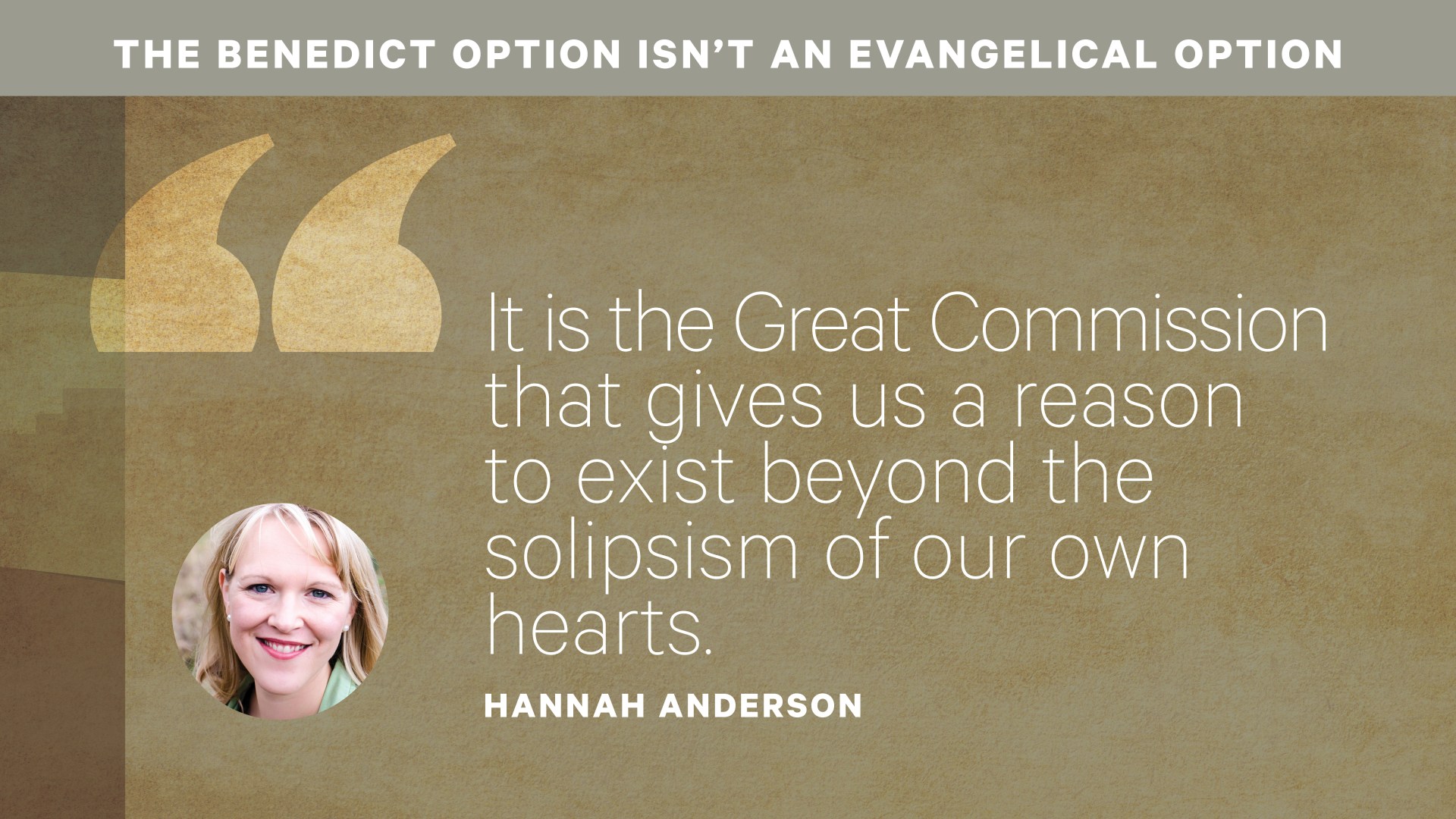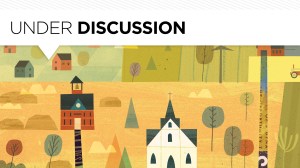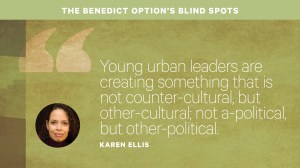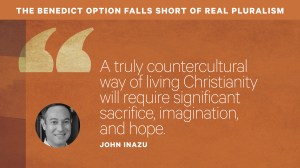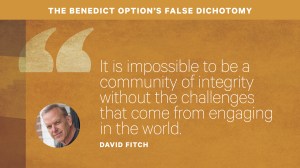In this series
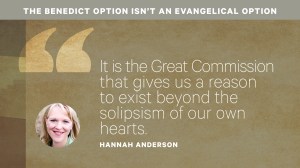
Christianity Today asked four thoughtful voices in our movement to read our March cover story on The Benedict Option and answer the following question: “In a time of weakening institutions and in an increasingly pluralistic age, what is the best way for Christians to strengthen their local Christian community?”
Rod Dreher’s call for a tactical retreat to resist secularism may be a viable corrective for Christian faith traditions with a well-established understanding of corporate faith and the role Christianity plays in the common good. But for evangelicals, whose theology emphasizes the individual's relationship with God, retreat could actually exacerbate our individualism by disabling a key piece of our systematic: the call to actively and intentionally work for the good of our neighbor’s soul.
In the wake of World War II, my maternal grandparents attended a small Christian college. Both came from unstable families, and The University (as we would come to know it) provided the institutional stability and spiritual formation they needed. Core to ethos of The University was a strong sense of separation from the world. This influence extended beyond geographic limits as alumni across the country subscribed to its particular vision of the Christian life, clustering in satellite churches and schools.
I attended The University and married within its network. Today my grandmother and a passel of aunts and uncles and cousins live near it.
Reading Dreher’s call for the Benedict Option, I couldn’t help but hear echoes of my own upbringing. I owe much to the idea of serious-minded Christians committing to a countercultural life—my faith, my education, my family, my very existence. But as much as such a community preserved our faith, it also distorted it. As we distanced ourselves from surrounding society, our faith gradually devolved into ever tighter definitions of faithfulness. “The World” was no longer defined by those who did not confess Christ but by how far a lifestyle choice diverged from the strictest members of the community.
Historically, evangelicalism’s individualistic focus has been held in tension by our commitment to the Great Commission. If every individual must answer to God, we must be about the business of evangelizing and discipling every individual. From this shared mission sprang communal institutions: schools, mission societies, local churches, and mercy ministries. For evangelicals, building community must be a form of advance, not retreat.
As counterintuitive as it sounds, evangelicals strengthen their local Christian communities by recovering a sense of responsibility for the larger communities in which we exist. It is the Great Commission that corrects the effects of secular individualism, actively confronting our consumerism, racism, sexism, xenophobia, and classicism. It is the Great Commission that gives us a reason to exist beyond the solipsism of our own hearts.
Today, my husband and I are raising our children in a small working-class community in the mountains of southwest Virginia. We moved here when he accepted a call to pastor a church. But instead of separating ourselves from our unbelieving neighbors, we’re throwing our lot in with them. Our children attend a Title I public elementary school; I’m on the PTA; my husband is treasurer of the rec club; Friday afternoons usually mean hanging out at our small cinderblock library.
Even as our family flourishes, our local church struggles because it has been taught to see itself as a place to retreat. But institutions will only exist as they have a reason to exist. Our marriages fail because we don’t have a reason for them to stay together. And our churches give way to individualism, in part, because they don’t have a reason not to.
Certainly in the thick of battle, we must give attention to survival, but we will only survive if we have something to both fight and live for.
Hannah Anderson lives in the Blue Ridge Mountains of Virginia where she serves beside her husband in rural ministry, cares for their three children, and writes about faith, community, and current events. She is the author of Made for More and the recently released Humble Roots: How Humility Grounds and Nourishes Your Soul (Moody). You can find more of her writing at sometimesalight.com, hear her on the weekly podcast Persuasion, or follow her on Twitter @sometimesalight.

